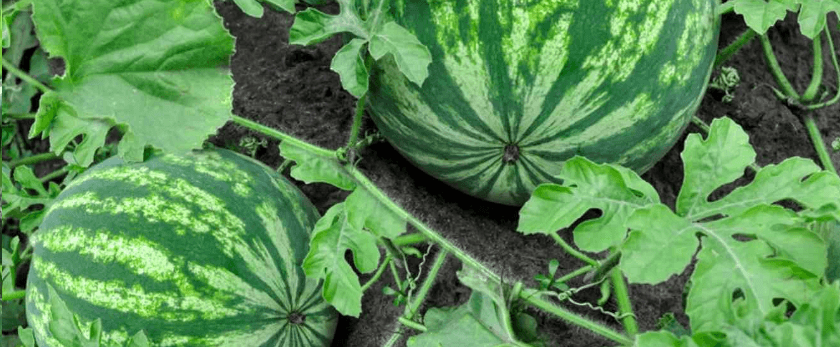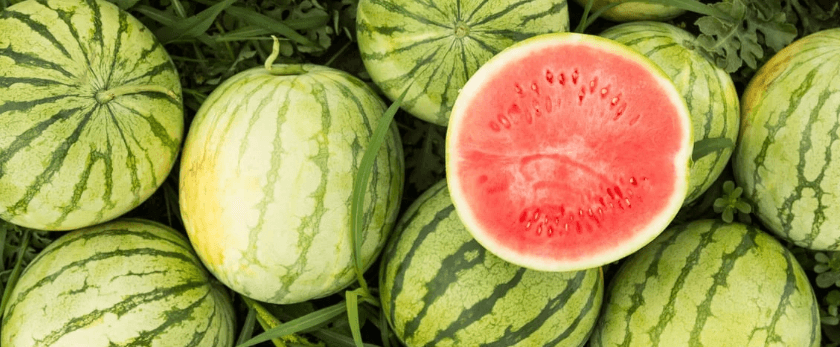Watermelon is a delicious and refreshing fruit that is perfect for hot summer days. Not only is it tasty, but it is also a great addition to any garden. Growing your own watermelon is not only a fun and rewarding experience, but it also helps reduce your carbon footprint by reducing the need for transportation and packaging. In this article, we will discuss how to grow watermelon in your own backyard, including caring for the plant, the best time to grow, and common problems you may encounter.
Caring for Watermelon
Watermelon plants require specific care to thrive and produce juicy, sweet fruits. Here are some key points to keep in mind when caring for your watermelon plant:
Watering
Watermelon plants need consistent watering to grow and produce fruits. They require about 1-2 inches of water per week, either from rainfall or irrigation. It is important to water the plants deeply, so the water reaches the roots. Shallow watering can lead to weak and shallow root systems, which can affect the plant's growth and fruit production.
Light
Watermelon plants need full sun to grow and produce fruits. They require at least 6-8 hours of direct sunlight per day. Make sure to plant them in an area that receives plenty of sunlight, away from any shade or trees that may block the sun.
Soil
Watermelon plants prefer well-drained, loamy soil with a pH level between 6.0-6.8. The soil should also be rich in organic matter. If your soil is not suitable, you can amend it by adding compost or aged manure before planting.
Fertilizer
Watermelon plants are heavy feeders and require regular fertilization to grow and produce fruits. Before planting, mix in a slow-release fertilizer into the soil. Once the plants start to grow, you can also use a liquid fertilizer every 2-3 weeks to provide them with the necessary nutrients.
Pruning
Pruning is not necessary for watermelon plants, but it can help improve air circulation and reduce the risk of diseases. You can remove any dead or damaged leaves and vines to keep the plant healthy.

Best Time to Grow Watermelon
The best time to grow watermelon depends on your location and climate. Watermelon plants require warm temperatures to grow, so it is best to plant them after the last frost in your area. In most regions, this is around late spring or early summer.
If you live in a colder climate, you can start your watermelon seeds indoors 2-3 weeks before the last frost and transplant them outside once the weather warms up. Make sure to harden off the seedlings before transplanting them to avoid shock.
Common Problems with Watermelon
Like any plant, watermelon can face some common problems that can affect its growth and fruit production. Here are some issues you may encounter and how to address them:
Pests
Watermelon plants can attract pests such as aphids, cucumber beetles, and squash bugs. These pests can damage the leaves and fruits of the plant. To prevent pest infestations, you can use natural methods such as companion planting, using insect-repelling plants, and handpicking the pests off the plant.
Diseases
Watermelon plants are susceptible to diseases such as powdery mildew, fusarium wilt, and anthracnose. These diseases can cause the leaves to wilt, turn yellow, and affect the fruits' quality. To prevent diseases, make sure to plant disease-resistant varieties, rotate your crops, and practice good garden hygiene.
Lack of Pollination
Watermelon plants require pollination to produce fruits. If you notice that your plant is not producing fruits, it may be due to a lack of pollination. You can hand-pollinate the flowers by using a small brush or by attracting pollinators to your garden, such as bees and butterflies.
Conclusion
Growing watermelon in your own backyard is a fun and rewarding experience that can also help reduce your carbon footprint. By following the tips mentioned in this article, you can successfully grow your own watermelon and enjoy its delicious fruits all summer long. Remember to care for your plant by providing it with enough water, sunlight, and nutrients, and address any problems that may arise. Happy gardening!










